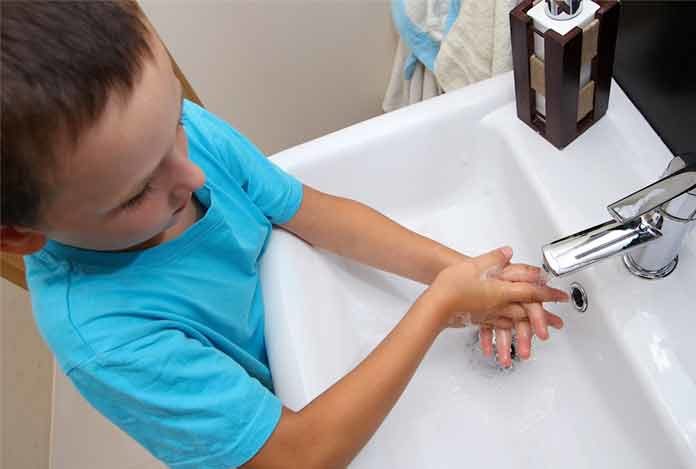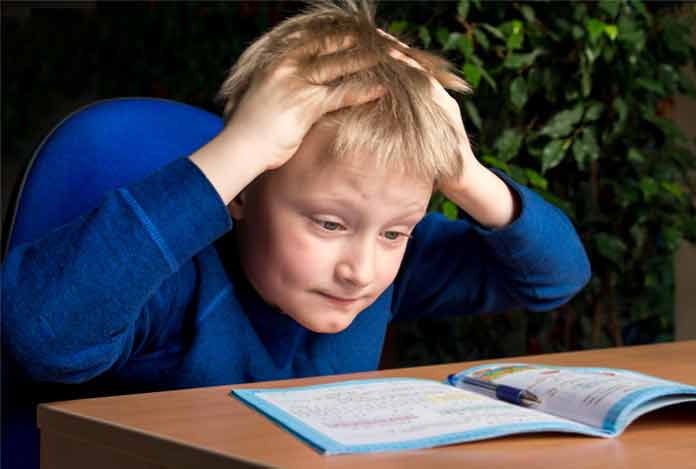
Obsessive Compulsive Disorder (OCD) is a chronic disorder in which a person gets occupied with thoughts that reoccur and cannot be controlled. people suffering from OCD have obsessive thoughts and exhibit compulsive behavior with an urge to repeat things or activities again and again. Your child too may be suffering from OCD. To identify whether it is OCD, you must check for several signs and symptoms of the condition in your child.
Dr. Phil has given a checklist to recognize the symptoms. If you find that these symptoms apply to your child not occasionally but on most days then he/she may be having OCD:

- Your child has incessant intrusive thoughts as well as images that may hamper his daily functioning. There is also difficulty in experiencing positive feelings like happiness and peace.
- Your child has persistent and intrusive images that cause stress and anxiety.
- The child may attempt to control these unwanted thoughts by exhibiting certain behaviors to reduce stress.
- The attempts of the child are unsuccessful in ignoring the intrusive images with distracting actions and thoughts.
- The child may feel that the thoughts that are disturbing him/her are not rational and feels to reduce the anxiety and stress for whatever it takes.
- Sometimes, the child has an unnecessary compulsion to do several activities like washing hands or counting things in an attempt to curb anxiety.
- It takes more than an hour each day to tackle such intrusive thoughts as well as images. This ruins the child’s daily routine.
- Your child feels depressed most of the time due to constant memories of disillusionments and regret.
- Sometimes, thoughts or images may be caused by an external trigger and it becomes really difficult for the child to get rid of these thoughts or reduce their intensity.
- In order to control frustration and anxiety, your child behaves as a perfectionist while working as he feels that by doing so, he may lower the chances of getting criticized.
- When the child finds himself being controlled by unnecessary thoughts and images, he/she starts becoming rigid and tries to follow a specific set of rules as any aberration from the routine could lead to anxiety.
- The strong desire to show certain behaviors keep visiting the child’s mind that usually don’t get resolved on its own, leading to a lot of stress.
- Your child wants everything to be perfect and is not satisfied until he finds things perfect to the level of perfection set by him.
- Your child feels guilty for no reason and is unable to overcome the that feeling.
- The child cannot let go of the past problems that have been forgotten or forgiven.
Some other signs and symptoms of obsessions and compulsions are:
- Fear of getting contaminated by germs
- Unwanted thoughts about sex, harming others and so on
- Being aggressive towards the self or others
- Being a perfectionist or wanting everything to be arranged perfectly
Compulsions may include:
- Excessively cleaning or washing hands
- Arranging things in a particular way
- Repeatedly checking things, such repeatedly checking if the door is locked or the gas knob is set to off
- Compulsive counting
A child with OCD:
- Is unable to control his behaviors or thoughts even when they are in excess.
- Spends nearly an hour each day with these obsessive behaviors and thoughts.
- Does not find the behaviors pleasurable but may experience intermittent relief from anxiety upon performing those rituals.
- Faces problems in daily life because of these thoughts or behaviors.
- May exhibit repetitive movements like blinking of eyes, shrugging the shoulders or head jerking.
So, if you observe majority–if not all–of these signs and symptoms, in your children, then he/she may be suffering from OCD and you must immediately consult a doctor or health care provider.










